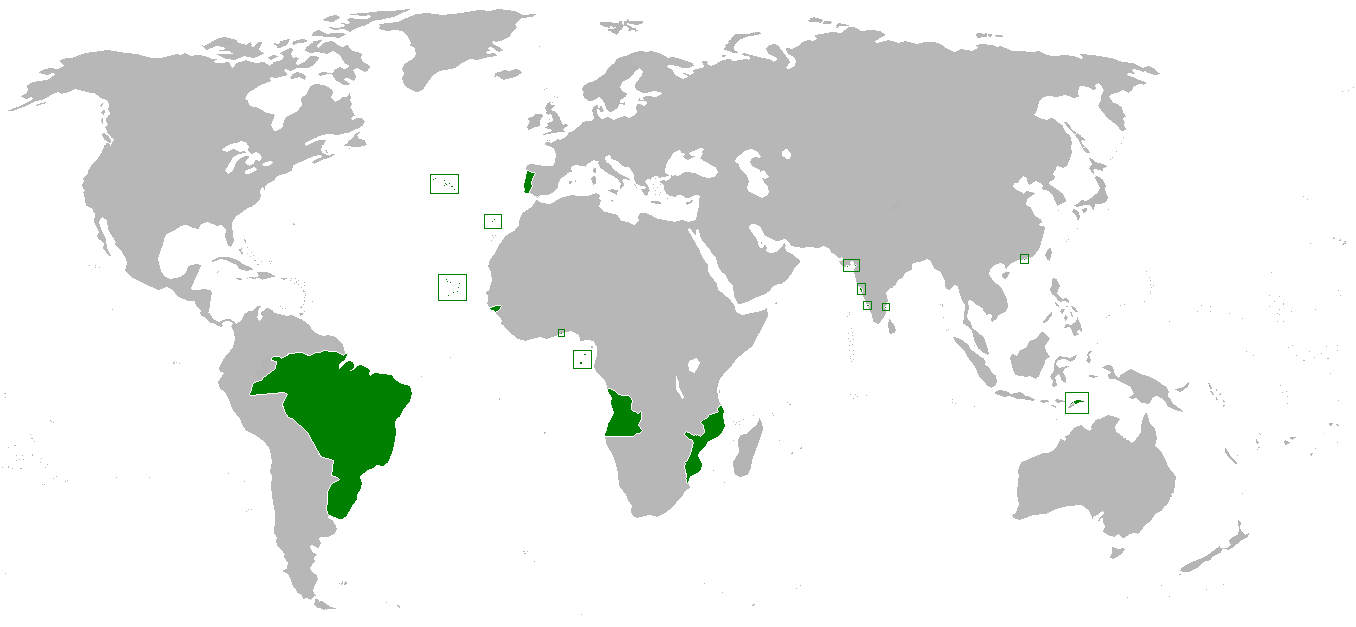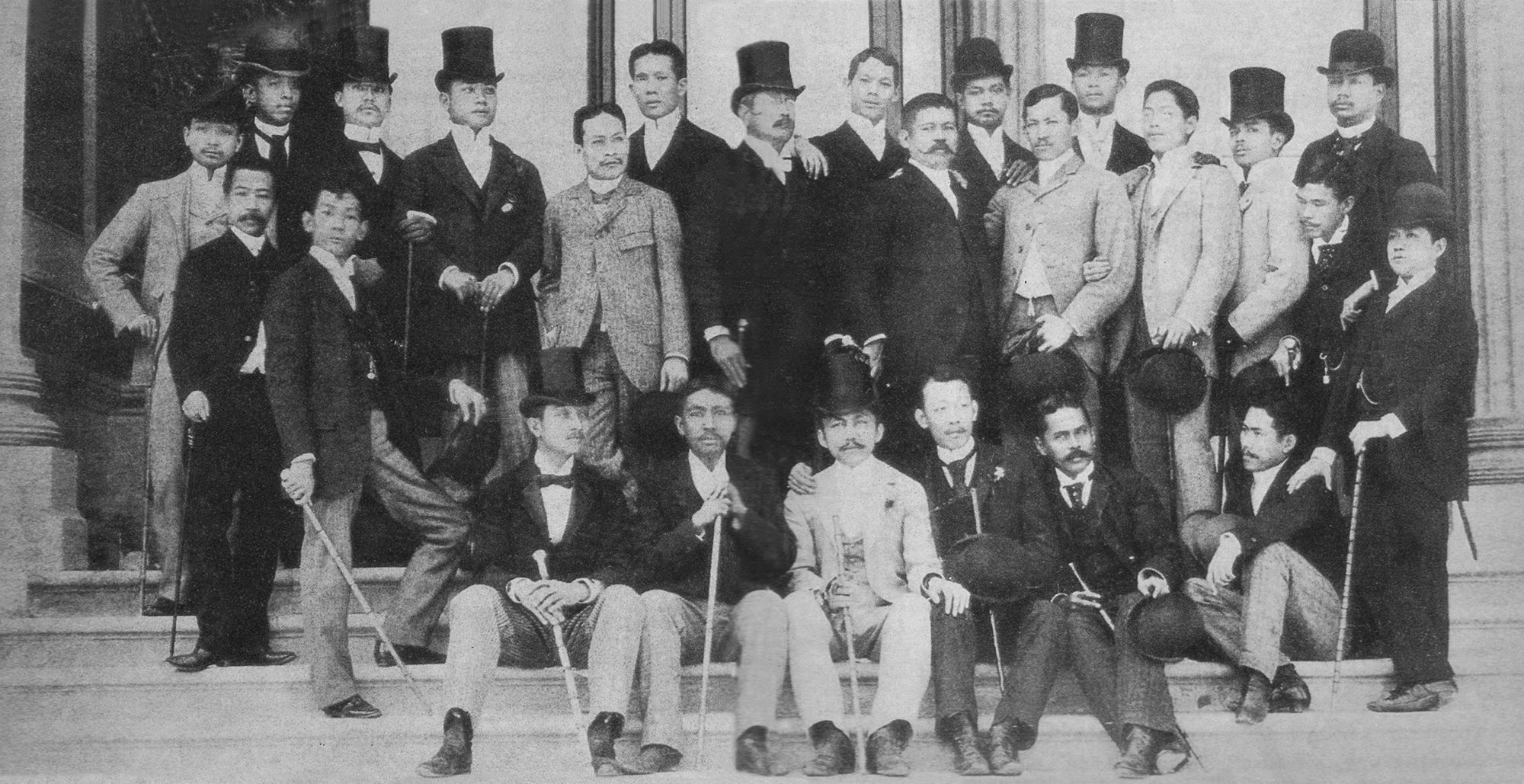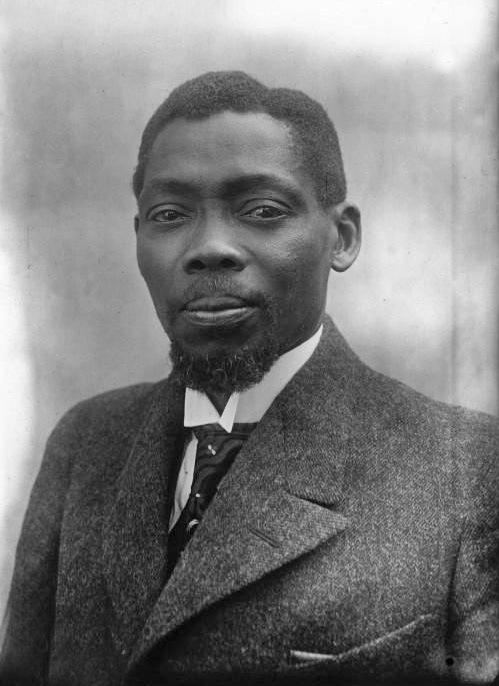|
Assimilado
Assimilado is the term given to African subjects of the colonizing Portuguese Empire from the 1910s to the 1960s, who had reached a level of "civilization", according to Portuguese legal standards, that theoretically qualified them for full rights as Portuguese citizens. Portuguese colonizers claimed as the goal for their assimilation practices, the "close union of races of different degrees of civilization that help and support each other loyally"; however, this notion of a "close union" differed from its practical application in the cultural and social spheres of the colonies of Portuguese Angola, Portuguese Mozambique and Portuguese Guinea.Heywood, Linda (2000). ''Contested Power in Angola, 1840s to the Present'', pp. 92-93. Rochester: University of Rochester Press. . Formation in Portuguese lawmaking Assimilation ideals begin Portugal, along with France, was one of the only Africa colonizers which introduced the idea of assimilation of the colonized people into the popula ... [...More Info...] [...Related Items...] OR: [Wikipedia] [Google] [Baidu] |
Portuguese Empire
The Portuguese Empire ( pt, Império Português), also known as the Portuguese Overseas (''Ultramar Português'') or the Portuguese Colonial Empire (''Império Colonial Português''), was composed of the overseas colonies, factories, and the later overseas territories governed by Portugal. It was one of the longest-lived empires in European history, lasting almost six centuries from the conquest of Ceuta in North Africa, in 1415, to the transfer of sovereignty over Macau to China in 1999. The empire began in the 15th century, and from the early 16th century it stretched across the globe, with bases in North and South America, Africa, and various regions of Asia and Oceania. The Portuguese Empire originated at the beginning of the Age of Discovery, and the power and influence of the Kingdom of Portugal would eventually expand across the globe. In the wake of the Reconquista, Portuguese sailors began exploring the coast of Africa and the Atlantic archipelagos in 1418–1419, u ... [...More Info...] [...Related Items...] OR: [Wikipedia] [Google] [Baidu] |
Lançados
The ''lançados'' (literally, ''the thrown out ones'' Pardue 2015: p. 42 or ''the cast out ones'') were settlers and adventurers of Portuguese origin in Senegambia, Cabo Verde, Guinea, Sierra Leone, and other areas on the coast of West Africa. Many were Jews—often New Christians—escaping persecution from the Portuguese Inquisition. ''Lançados'' often took African wives from local ruling families, securing protection and advantageous trading ties. They established clandestine trading networks in weaponry, spices, and slaves. This black market angered the Portuguese Crown by disrupting its ability to collect taxes. Although never large in numbers, mixed-race children born to the ''lançados'' and their African wives and concubines served as crucial intermediaries between Europeans and native Africans. These mixed-race people wielded significant power in the early development of port economies in Bissau, Cacheu, and surrounding areas. The ''lançados'' originated the Portuguese-b ... [...More Info...] [...Related Items...] OR: [Wikipedia] [Google] [Baidu] |
Luso-Africans
Luso-Africans are people of mixed Portuguese and African ancestry who speak Portuguese. The vast majority of Luso-Africans live in former Portuguese Africa, now referred to as ''Lusophone Africa'', comprising the modern countries of Angola, Guinea-Bissau, Cape Verde, Mozambique, SĂŁo TomĂ© and PrĂncipe, and Equatorial Guinea. A sizable number of Luso-Africans have also settled in Portugal where they form a racial minority. This ethnic identity arose from the sixteenth century as primarily male Portuguese settlers, often ''Lançados'', settled in various parts of Africa, often marrying African women. In the fifteenth and sixteenth century, Portuguese traders settled in the Cape Verde Islands and along the West African coast from Senegal to Sierra Leone. Descendants of these traders and of local African women formed the nucleus of a Luso-African community that soon developed a distinctive culture, joining elements of European and local African culture. These Luso-Africans, or 'Portu ... [...More Info...] [...Related Items...] OR: [Wikipedia] [Google] [Baidu] |
Lusotropicalism
Lusotropicalism ( pt, Lusotropicalismo) is a term and "quasi-theory" developed by Brazilian sociologist Gilberto Freyre to describe the distinctive character of Portuguese imperialism overseas, proposing that the Portuguese were better colonizers than other European nations.Miguel Vale de AlmeidaPortugal’s Colonial Complex: From Colonial Lusotropicalism to Postcolonial Lusophony/ref> Freyre theorized that because of Portugal's warmer climate, and having been inhabited by Celts, Romans, Visigoths, Moors and several other peoples in pre-modern times, the Portuguese were more humane, friendly, and adaptable to other climates and cultures. He saw "Portuguese-based cultures as cultures of ecumenical expansion" and suggested that "Lusotropical culture was a form of resistance against both the 'barbaric' Soviet communist influence, and the also 'barbarian' process of Americanization and capitalist expansion." In addition, by the early 20th century, Portugal was by far the European c ... [...More Info...] [...Related Items...] OR: [Wikipedia] [Google] [Baidu] |
Pluricontinentalism
Pluricontinentalism ( pt, Pluricontinentalismo) was a geopolitical concept, positing that Portugal was a transcontinental country and a unitary nation-state consisting of continental Portugal and its overseas provinces. With origins as early as the 14th century, pluricontinentalism gained official state sponsorship in the Estado Novo regime. It was the idea that Portugal was not a colonial empire (Portuguese Empire) but a singular nation-state spread across continents (hence the name). As such, overseas possessions were a part of Portuguese identity. The first time that Portugal was a pluricontinental country was during the reign of Maria I of Portugal, with the creation of the United Kingdom of Portugal, Brazil and the Algarves, when the Portuguese court was living in Brazil and Rio de Janeiro served as the capital for the country. The idea of pluricontinentalism quickly collapsed following the Carnation Revolution in 1974. People associated with pluricontinentalism *AntĂł ... [...More Info...] [...Related Items...] OR: [Wikipedia] [Google] [Baidu] |
Lusotropicalism
Lusotropicalism ( pt, Lusotropicalismo) is a term and "quasi-theory" developed by Brazilian sociologist Gilberto Freyre to describe the distinctive character of Portuguese imperialism overseas, proposing that the Portuguese were better colonizers than other European nations.Miguel Vale de AlmeidaPortugal’s Colonial Complex: From Colonial Lusotropicalism to Postcolonial Lusophony/ref> Freyre theorized that because of Portugal's warmer climate, and having been inhabited by Celts, Romans, Visigoths, Moors and several other peoples in pre-modern times, the Portuguese were more humane, friendly, and adaptable to other climates and cultures. He saw "Portuguese-based cultures as cultures of ecumenical expansion" and suggested that "Lusotropical culture was a form of resistance against both the 'barbaric' Soviet communist influence, and the also 'barbarian' process of Americanization and capitalist expansion." In addition, by the early 20th century, Portugal was by far the European c ... [...More Info...] [...Related Items...] OR: [Wikipedia] [Google] [Baidu] |
Ilustrado
The Ilustrados (, "erudite", "learned" or "enlightened ones") constituted the Filipino educated class during the Spanish colonial period in the late 19th century. Elsewhere in New Spain (of which the Philippines were part), the term ''gente de razĂłn'' carried a similar meaning. They were middle class Filipinos, many of whom were educated in Spain and exposed to Spanish liberal and European nationalist ideals. The ''Ilustrado'' class was composed of native-born intellectuals and cut across ethnolinguistic and racial lines—'' Indios'', ''Insulares'' and ''Mestizos'', among others—and sought reform through "a more equitable arrangement of both political and economic power" under Spanish tutelage. Stanley Karnow, in his '' In Our Image: America's Empire in the Philippines'', referred to the ''Ilustrados'' as the "rich Intelligentsia" because many were the children of wealthy landowners. They were key figures in the development of Filipino nationalism.< ... [...More Info...] [...Related Items...] OR: [Wikipedia] [Google] [Baidu] |
Assimilation (French Colonialism)
Assimilation was a major ideological component of French colonialism during the 19th and 20th centuries. The French government promoted the concept of cultural assimilation to colonial subjects in the French colonial empire, claiming that by adopting French culture they would ostensibly be granted the full rights enjoyed by French citizens and be legally considered "French". Colonial settlements established by the French, such as the Four Communes in French West Africa, were created with the assimilation concept in mind, and while Africans living in such settlements were theoretically granted the full rights of French citizens, discriminatory policies from various French colonial administrations denied most of these rights to "full-blooded Africans". Definition The concept of assimilation in French colonial discourse was based on the idea of spreading French culture to France's colonies in the 19th and the 20th centuries. Colonial subjects living in French colonies were consi ... [...More Info...] [...Related Items...] OR: [Wikipedia] [Google] [Baidu] |
Évolué
''Évolué'' (, "evolved" or "developed") is a French label used during the colonial era to refer to a native African or Asian who had "evolved" by becoming Europeanised through education or assimilation and had accepted European values and patterns of behavior. It is most commonly used to refer to individuals within the Belgian and French colonial empires. ''Évolués'' spoke French, followed European (rather than customary) laws, usually held white-collar jobs (although rarely higher than clerks), and lived primarily in urban areas of the colony. Belgian colonies The term was also used to describe the growing native middle class in the Belgian Congo (the modern-day Democratic Republic of the Congo) between the latter part of World War II and the independence of the colony in 1960. Most ''évolué''s emerged from the Congolese who filled skilled positions (such as clerks and nurses) made available by the economic boom in the country following the war. Colonial administrator ... [...More Info...] [...Related Items...] OR: [Wikipedia] [Google] [Baidu] |
Emancipado
Emancipado () was a term used for an African-descended social-political demographic within the population of Spanish Guinea (modern day Equatorial Guinea) that existed in the early to mid 1900s. This segment of the native population had become assimilated into the former White society of Spanish Guinea which primarily existed along the coastline communities of the continental part of the country, as well as on the islands of Bioko and AnnobĂłn. Population specifics This population included: * Full-blooded descendants of local/regional native tribes that had assimilated to the Whites after receiving a Christian Spanish education. * Descendants of freed Cuban slaves who, despite being free to return to Cuba, remained in the country, marrying into the local population. These former slaves were brought to Africa by the ''Royal Orders of September 13, 1845'' (by way of voluntary arrangement) and a June 20, 1861 deportation from Cuba, due to the lack of volunteers. Many were of Europ ... [...More Info...] [...Related Items...] OR: [Wikipedia] [Google] [Baidu] |
Portuguese Colonial War-fr
Portuguese may refer to: * anything of, from, or related to the country and nation of Portugal ** Portuguese cuisine, traditional foods ** Portuguese language, a Romance language *** Portuguese dialects, variants of the Portuguese language ** Portuguese man o' war, a dangerous marine cnidarian that resembles an 18th-century armed sailing ship ** Portuguese people, an ethnic group See also * * ''Sonnets from the Portuguese'' * "A Portuguesa", the national anthem of Portugal * Lusofonia * Lusitania Lusitania (; ) was an ancient Iberian Roman province located where modern Portugal (south of the Douro river) and a portion of western Spain (the present Extremadura and the province of Salamanca) lie. It was named after the Lusitani or Lusita ... * {{disambiguation Language and nationality disambiguation pages ... [...More Info...] [...Related Items...] OR: [Wikipedia] [Google] [Baidu] |
Ă“rfĂŁs Do Rei
The Ă“rfĂŁs do Rei (, ''orphans of the king'') were Portuguese girl orphans who were sent from Portugal to overseas colonies during the Portuguese Empire as part of Portugal's colonization efforts. The orphans were married to native rulers or Portuguese settlers. Purpose and practicalities OrfĂŁs do Rei translates to "Orphans of the King", and they were all girls. Their fathers were Portuguese men who died in battle for the king. They were sent to the colonies of the Portuguese Empire. The Asian colonies contained more Portuguese females than was previously thought. Bernard Sta Maria wrote that "From 1545, King John III began to send to India (and the Far East) with all pomp and distinction many young Portuguese women known as 'Orphans of the Queen' to be married with local young men." Both noble and non-noble girls were in the ''ĂłrfĂŁs do rei''. Since these girls were specifically designated as the "King's", the Portuguese government paid for their care and upbringing before and ... [...More Info...] [...Related Items...] OR: [Wikipedia] [Google] [Baidu] |
.jpg)



